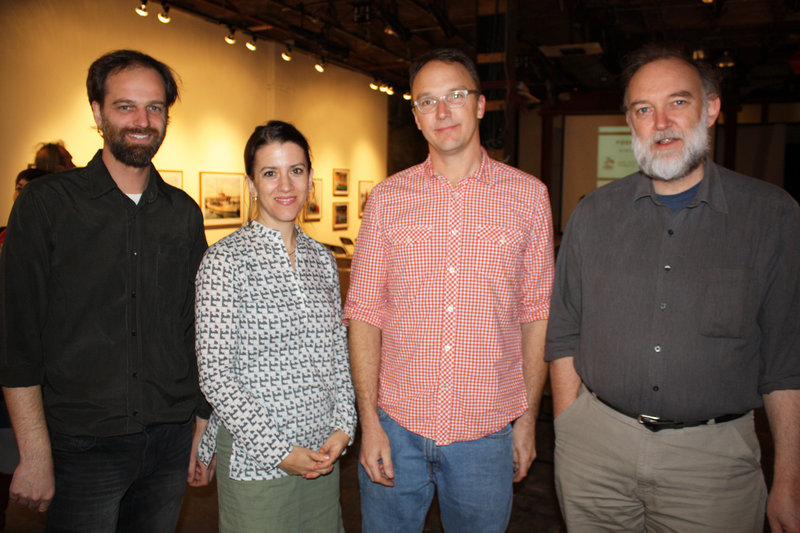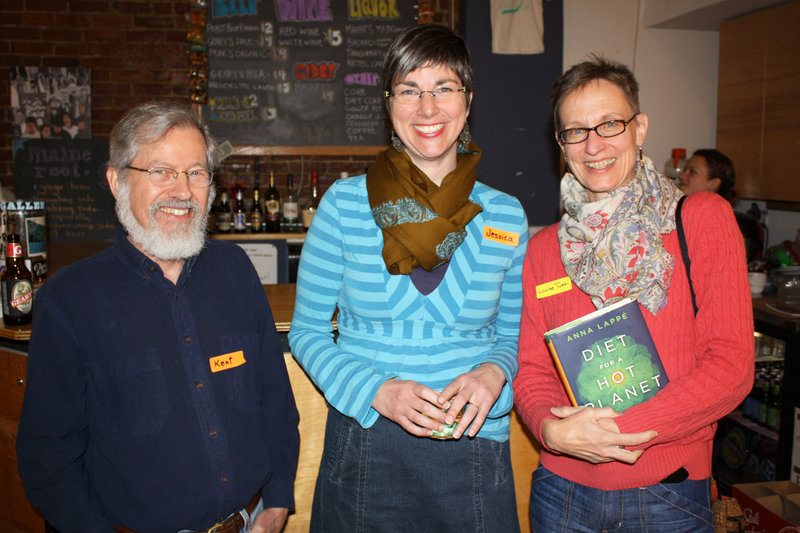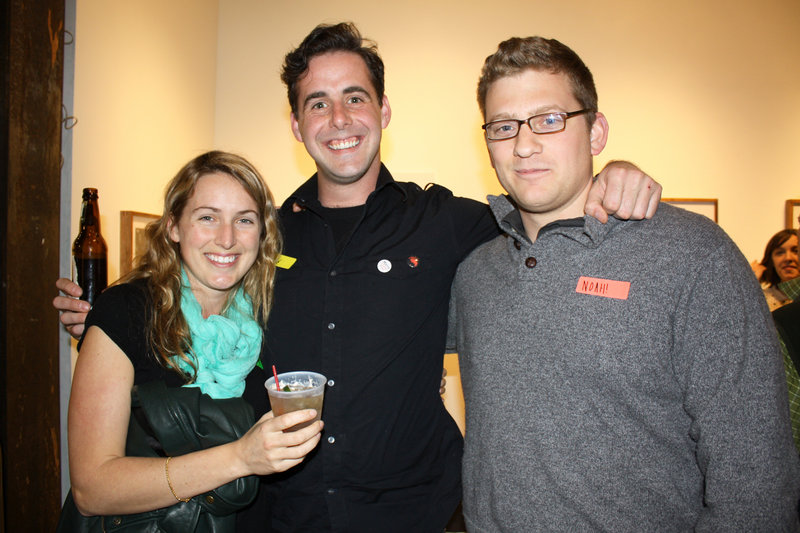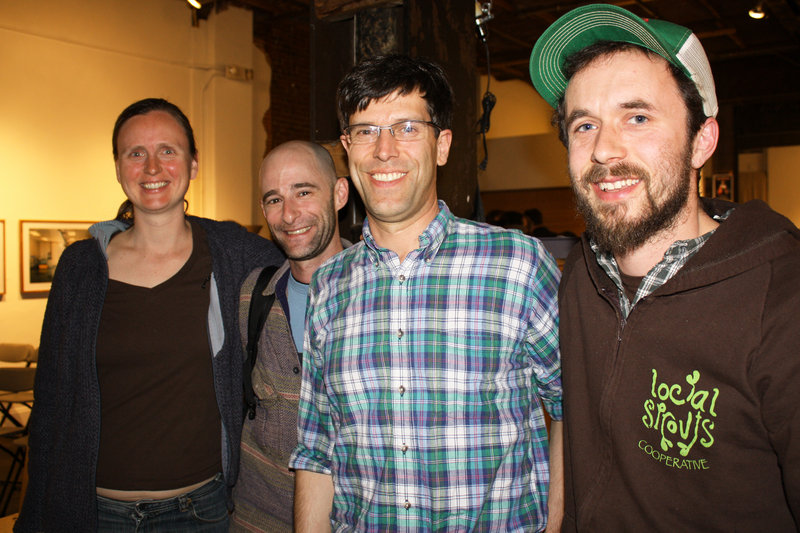With local, organic and sustainably produced food all the rage, the big food processors and factory farm associations are running scared. This is the message author Anna Lappe brought to Space Gallery in Portland on April 15 as part of the venue’s annual Food+Farm series.
“There’s a growing global consensus about food and farming” and its relation to climate change and environmental degradation, Lappe told the crowd. “This growing consensus is exactly why the food industry is so worried.”
Lappe talked about the mountain of independent research showing that climate change is happening and that conventional agriculture is a major contributor.
This is also the subject of her latest book, “Diet for a Hot Planet: The Climate Crisis at the End of Your Fork and What You Can Do About It.”
During her talk, Lappe said food marketers have adopted the strategy employed by the tobacco industry: spreading doubt. This strategy, she said, allows agribusiness to conveniently ignore science and facts and instead use its well-connected spokespeople to question whether sustainably produced food is really the best choice and to perpetuate myths about the need for petroleum-intensive farming.
This was information that the foodie crowd gathered for her talk and the reception preceding it were interested to learn.
During the reception, the folks I chatted with agreed there’s a lot to be concerned about when it comes to what’s for sale on supermarket shelves. But what everyone wanted to talk about was how Maine is a leader in the effort to create a new food system.
“The sustainable food scene in Maine has a lot of possibility and potential,” said Jonah Fertig, who is a founder of Local Sprouts Cooperative Cafe & Catering, where the menu is made up of all locally grown food. “It’s definitely a different situation than other parts of the country. We have a lot of farmland and a lot of farmers. And Maine’s not controlled by industrial agriculture.”
He added, “the access to good, local, organic food, in my opinion, should be a basic right.”
The view that Maine is a leader in changing the face of agriculture was shared by Emily Graham, who serves on the board of the Portland Food Co-op.
“I feel like we’re ahead of the curve,” Graham told me. “Portland is defining itself as a sustainable food hub. It isn’t a political thing. There aren’t a whole lot of things we have consensus on as Mainers, but we do around food and farms.”
“When I travel, one of the few things people know about Portland is the food scene,” Alex Steed of Cornish told me.
The recognition of Maine’s rich food community is not limited to people from away.
“What’s most exciting to me is when you go to the farmers market and a lot of the farmers are in their 20s and 30s,” Jenny Dougherty, who is the associate director of Space, told me. “This isn’t a dying tradition, and potentially Maine can be a leader in that. For Maine, it’s not just a hip trend, it’s our history.”
I also had a quick chat with filmmaker Cecily Pingree, who is the daughter of Congresswoman Chellie Pingree. She and the Pull-Start Pictures team are currently working on a documentary about the formation and struggles of Maine’s Own Organic Milk company. Right now the team is combing through 200 hours of footage and expects to screen the film around Christmastime.
Lappe’s talk was just one of the events that took place as part of Food+Farm. Other offerings included a theatrical reading, a film screening and an on-farm volunteer day.
“This is the fourth annual Food+Farm,” Space board member Jessica Tomlinson told me. “It was never by design an annual thing. We were so surprised by the popularity of it. I think that speaks volumes to what is going on in Maine.”
While much of her talk was rather gloomy, Lappe ended on a positive note by saying we are in a time of shifting consciousness.
“We know we have the truth on our side,” Lappe said. “And I think it will ultimately triumph.”
Staff Writer Avery Yale Kamila can be contacted at 791-6297 or at:
akamila@pressherald.com
Follow her on Twitter at:
Twitter.com/AveryYaleKamila
Send questions/comments to the editors.





